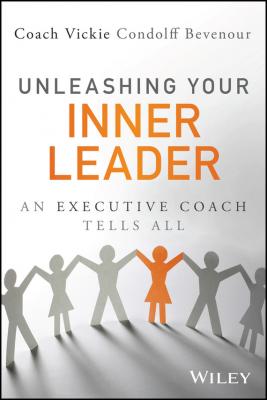ТОП просматриваемых книг сайта:
Unleashing Your Inner Leader. Bevenour Vickie
Читать онлайн.Название Unleashing Your Inner Leader
Год выпуска 0
isbn 9781119047032
Автор произведения Bevenour Vickie
Жанр Зарубежная образовательная литература
Издательство John Wiley & Sons Limited
Using and Leveraging Your Strengths
The personal power that comes from being sure of what you are good at and what you love to do is the first step toward unleashing your Inner Leader. It certainly was a huge discovery for me. Remember the story told in Chapter 1? I discovered that I am a maximizer and that I am much happier working on the good to great projects rather than the bad to good projects. That has shaped my every decision and my every move forward. It almost becomes second nature to me that when I get a client referral, within the first 10 minutes of conversation, I can tell whether this is an ideal match for me or whether I should simply refer him or her to another coach whose strength is more in the development (bad to good) area.
This idea of finding clarity can be a huge boost to your productivity and efficiency. How, you might ask? The answer is that when you are doing what you love to do, it hardly feels like work; when you do more of what you love, you will become a master at it, and that will lead to ultimate success. Still not convinced? Let's think about the concept of spending your personal energy through the story of Carlton.
I worked with Carlton, a very successful project director whose top strength was harmony. What that meant for Carlton was that he led projects by moving all the stakeholders to consensus, and then he had to manage only the few exceptions that they could not agree on. Building consensus was his natural strength; he enjoyed leading in that mode and was good at what he did. Enter his new boss, who was extremely analytical and began to demand spreadsheet after spreadsheet from Carlton. Building spreadsheets was not Carlton's strength because he did not like it and he was not good at it. When Carlton came to me with this dilemma, we discussed the obvious. Maybe he could take some Excel classes and get better and more efficient at this task. Then I asked him the following question:
“What would be your personal return on this investment? For example, if you invest 50 percent of your time in this learning experience, will you receive at least an equal or greater return on your investment? In other words, if you invest 50 percent of your time in this, will you come out with at least 50 percent better Excel skills?”
Carlton rolled his eyes at me and emphatically stated that he hates building spreadsheets and no matter how many classes he attends, he knows that he would never get 50 percent better.
What would you do in this situation?
Much of Carlton's instinct was to grin and bear it and either wait for the boss to move on in a few years or leave the job that he used to love. I requested that he pull on his Inner Leader and think of other alternatives. The one he chose was simple: find someone on his staff who loves to do spreadsheets, who has a natural strength in analysis, and let him or her do it.
That seemed so simple but the person that he had in mind did not have building spreadsheets as part of his job. Carlton approached that person and they worked out a way to make this happen. Then Carlton used his natural strength of harmony (building consensus) and approached his boss, using his language of analysis. The boss not only hardily concurred that Carlton's staff person could do the spreadsheets but also was excited to have someone who loved building these spreadsheets to work with.
In today's world of doing more with less, this concept of personal return on investment is huge. However, it is usually at this point in the discussion that I get some interesting pushback. That pushback is normally in some form that states, “Vickie, this is all well and good, but my job is so demanding and so multifaceted that I just do not have the luxury of only doing what I love to do and what I am good at.” My answer is that I understand that wholeheartedly, and my suggestion is that you slowly begin to chip away at parts of your work life where you can use your strengths. Imagine if you could make it a goal to use your strengths 20 percent of the time in the next four months. Then move on to expand that to using your strengths 30 percent in the following four months. Also, for those who are looking at the next step in their career, building a career plan around using your strengths could be exactly the secret ingredient that you have been looking for to help you find the place where you can do what you are good at and what you love to do and get paid for it. Now your Inner Leader will be smiling.
Конец ознакомительного фрагмента.
Текст предоставлен ООО «ЛитРес».
Прочитайте эту книгу целиком, купив полную легальную версию на ЛитРес.
Безопасно оплатить книгу можно банковской картой Visa, MasterCard, Maestro, со счета мобильного телефона, с платежного терминала, в салоне МТС или Связной, через PayPal, WebMoney, Яндекс.Деньги, QIWI Кошелек, бонусными картами или другим удобным Вам способом.

